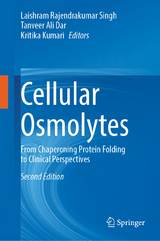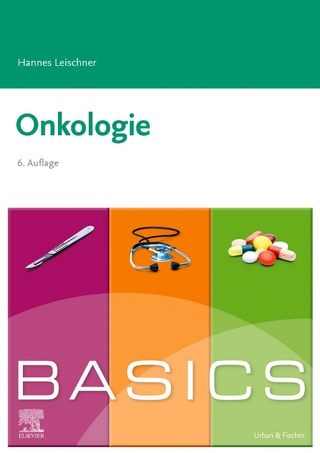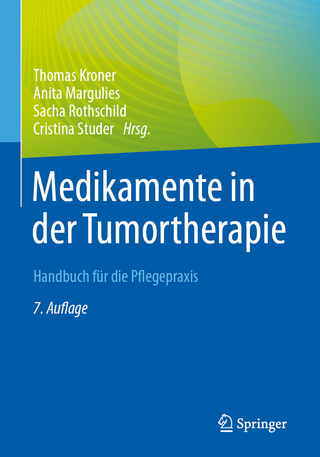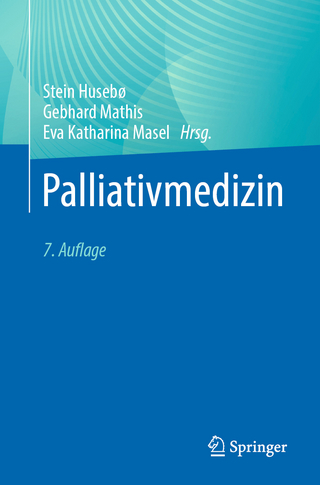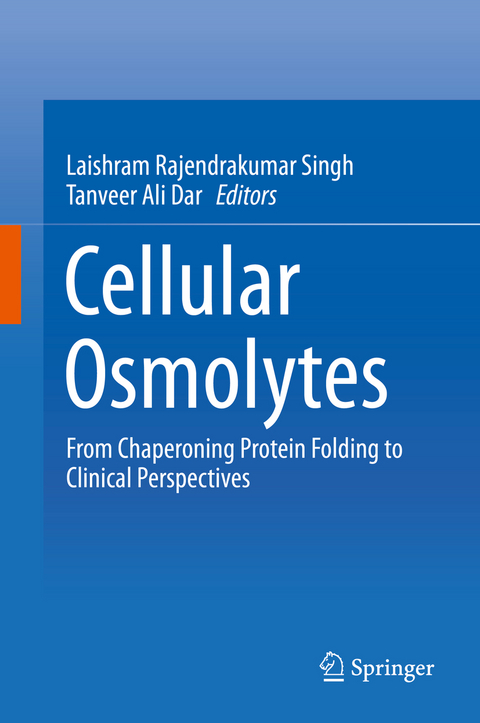
Cellular Osmolytes
Springer Verlag, Singapore
978-981-10-3706-1 (ISBN)
- Titel erscheint in neuer Auflage
- Artikel merken
Additionally, recent advances have also revealed that certain specific osmolytes might be key biomarkers of cancer, infectious diseases and vaccine flocculation. In fact, a large pool of data has been generated regarding their potential for the therapeutic intervention of neurodegenerative diseases and other metabolic disorders caused by protein aggregation or proteostasis failure.
Reflecting the multiple applications of these small molecules in the health and other industries, this book combines contributions by respected leaders in the field and will help to inspire college students, basic researchers, and clinicians to translate these biological roles of osmolytes into clinical practice. It will also shed light on some important future prospects of osmolytes like their role as drug excipients and provide a deeper understanding of their mechanism of action in the prevention of neuro-degenerative diseases.
Dr. Laishram R. Singh is an Assistant Professor at the University of Delhi. He obtained his Master’s degree from Jamia Millia Islamia, New Delhi. After receiving a doctoral degree in protein biophysics from Jamia Millia Islamia, Dr. Singh continued his postdoctoral research at Fox Chase Cancer Center, Philadelphia (FCCC). During his doctoral studies, he was engaged in investigating how small molecule compounds affect native protein structure, stability, and enzymatic catalysis. At the FCCC his main research interest was in understanding the proteostasis and modulators of mutant proteins including mutants of p53, cystathionine beta synthase, and methyl tetrahydrofolatereductase. Currently, Dr. Singh (at Delhi University) is investigating how dysregulated proteostasis, which is the common hallmark of many neurodegenerative and metabolic disorders, could be reversed. A prominent enzymologist and protein biochemist, Dr. Singh has authored more than 40 publications in many esteemed journals in the field of proteostatic regulation by small molecules and various heat shock proteins. He has also contributed chapters to several books published by Springer, InTech and Elsevier, etc., and is an active reviewer and Editorial Board member of several journals. Dr. Tanveer A. Dar is a senior Assistant Professor of Clinical Biochemistry at the University of Kashmir, India. He received his Master’s in biochemistry from Hamdard University, New Delhi, India, in 2003 and his PhD in biosciences from Jamia Millia Islamia, New Delhi in 2009. After completing his PhD, he engaged in a postdoctoral fellowship with Prof. Bruce E. Bowler at the University of Montana, USA. His main research area is protein structural biology and medicinal plant proteomics. He has published research papers in reputed international journals on protein folding and its stability in the presence of small molecule solutes. He is a recipient of Research Fellowships from the CSIR, NewDelhi, and the Indian National Science Academy. Dr. Dar is actively involved in various projects as principal investigator and co-investigator with funding from various reputed national funding agencies, e.g. the Department of Biotechnology and Department of Science and Technology, Govt. of India, New Delhi. His current research focuses on the modulation of protein fibrillation/aggregation by chemical chaperones and the characterization of therapeutically important proteins from medicinal plants.
Polyols as exceptional Protein stabilizers.- Osmolyte mixtures versus individuals in protein folding and aggregation.- Molecular insights of Osmolyte-protein Interaction.- MDS simulation studies on osmolyte protein interactions.- Osmolytes as protein aggregation Modifiers.- Osmolytes as Nano-probes of conformational changes.- Inhibition of Protein fibrillation by Chemical chaperones: a Therapeutic strategy.- Osmolyte in Infectious Diseases.- Possible strategies for the therapeutic intervention of osmolyte in Cancer.- Antioxidant osmolytes.- Advances on the in vivo studies of the effect of osmolyte on various pathophysiological conditions.- TMAO in alpha Synuclein aggregation.- Osmolytes: from cell physiology to Disease Prevention.- Osmolytes in Cell-volume Regulation.- Role of Osmolytes in counteracting the deleterious effects of denaturant/pressure.
| Erscheinungsdatum | 03.06.2017 |
|---|---|
| Zusatzinfo | 16 Illustrations, color; 20 Illustrations, black and white; VII, 249 p. 36 illus., 16 illus. in color. |
| Verlagsort | Singapore |
| Sprache | englisch |
| Maße | 155 x 235 mm |
| Themenwelt | Medizin / Pharmazie ► Medizinische Fachgebiete ► Onkologie |
| Medizin / Pharmazie ► Physiotherapie / Ergotherapie ► Orthopädie | |
| Naturwissenschaften ► Biologie ► Biochemie | |
| Naturwissenschaften ► Biologie ► Botanik | |
| Naturwissenschaften ► Biologie ► Genetik / Molekularbiologie | |
| Naturwissenschaften ► Biologie ► Zellbiologie | |
| Naturwissenschaften ► Biologie ► Zoologie | |
| Technik ► Umwelttechnik / Biotechnologie | |
| Schlagworte | Chemical chaperones • Osmolytes • Protein Folding • Protein Misfolding • Protein stability • Stress |
| ISBN-10 | 981-10-3706-X / 981103706X |
| ISBN-13 | 978-981-10-3706-1 / 9789811037061 |
| Zustand | Neuware |
| Informationen gemäß Produktsicherheitsverordnung (GPSR) | |
| Haben Sie eine Frage zum Produkt? |
aus dem Bereich
